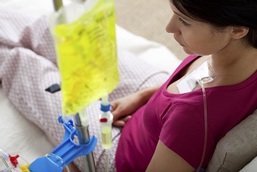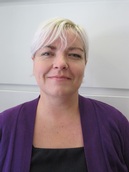Keeping cancer a secret
 There are a large number of cancer patients who are opting to face their illness alone, keeping close family and friends in the dark about their diagnosis and treatment to protect them, research by Bupa suggests.
There are a large number of cancer patients who are opting to face their illness alone, keeping close family and friends in the dark about their diagnosis and treatment to protect them, research by Bupa suggests.
One quarter of women and almost a fifth of men diagnosed with cancer say they have considered not telling their family.
Two million people within the UK are living with or clear of cancer. One in six people know someone who has decided not to tell their close family or friends about their diagnosis. Fifty-four per cent of people surveyed would respect a friend or family member’s decision to keep their diagnosis a secret whilst 46 per cent said that they would feel sad.

Jayne Molyneux, cancer healthcare manager at Bupa said: “Every patient reacts differently to their cancer diagnosis. We are finding more patients choosing to keep their diagnosis to themselves and dealing with treatment on their own, or until they’ve come to terms with it.”
The research has found that women are most likely to keep a cancer diagnosis to themselves, 20 per cent of female cancer patients considered not telling their parents, siblings, or extended family such as grandparents, compared to 15 per cent of men.
The main reason given by women wanting to keep their diagnosis a secret is, because they wanted their lives to remain as normal as possible with 59 per cent of women citing this as a reason. Of these women 21 per cent said they couldn't face having the conversation with close friends.
There was a further noticeable difference between telling a partner or spouse about a cancer diagnosis, four per cent of women said they’d consider not telling compared to just one per cent of men.
Ms Molyneux added: “We know people don’t like worrying those close to them and many cancer patients try to put on a brave face. But talking to someone can help. Each of our customers with cancer are offered a named oncology nurse who provides support, particularly those choosing not to tell family or friends, by giving emotional and practical advice before, during and after treatment.”
Nearly half of patients surveyed admitted they had considered not sharing their cancer diagnosis with parents and siblings and cited not wanting sympathy or special treatment as a reason, while almost one third said that they would manage on their own.
Research conducted by Cancer Research UK indicates the number of new cancer cases are rising and approximately 330,000 people are diagnosed every year in the UK and by 2030, this figure is expected to increase to more than 425,000 new cases per year.
Bupa has an oncology support team specially trained to help people with cancer cope after diagnosis and during treatment offering to help support them socially, financially, physically and emotionally.
Latest News
 29-Jul-24
Dementia Bus gives carehome.co.uk staff insight into life with dementia
29-Jul-24
Dementia Bus gives carehome.co.uk staff insight into life with dementia
 27-Jul-23
UK's top home care agencies in 2023 revealed
27-Jul-23
UK's top home care agencies in 2023 revealed
 30-Nov-22
A quarter of older people keep their falls secret from family
30-Nov-22
A quarter of older people keep their falls secret from family
 29-Nov-22
'Covid-19 has not gone away' say terminally ill
29-Nov-22
'Covid-19 has not gone away' say terminally ill
 28-Nov-22
IT consultant who received poor care opens 'compassionate' home care business
28-Nov-22
IT consultant who received poor care opens 'compassionate' home care business